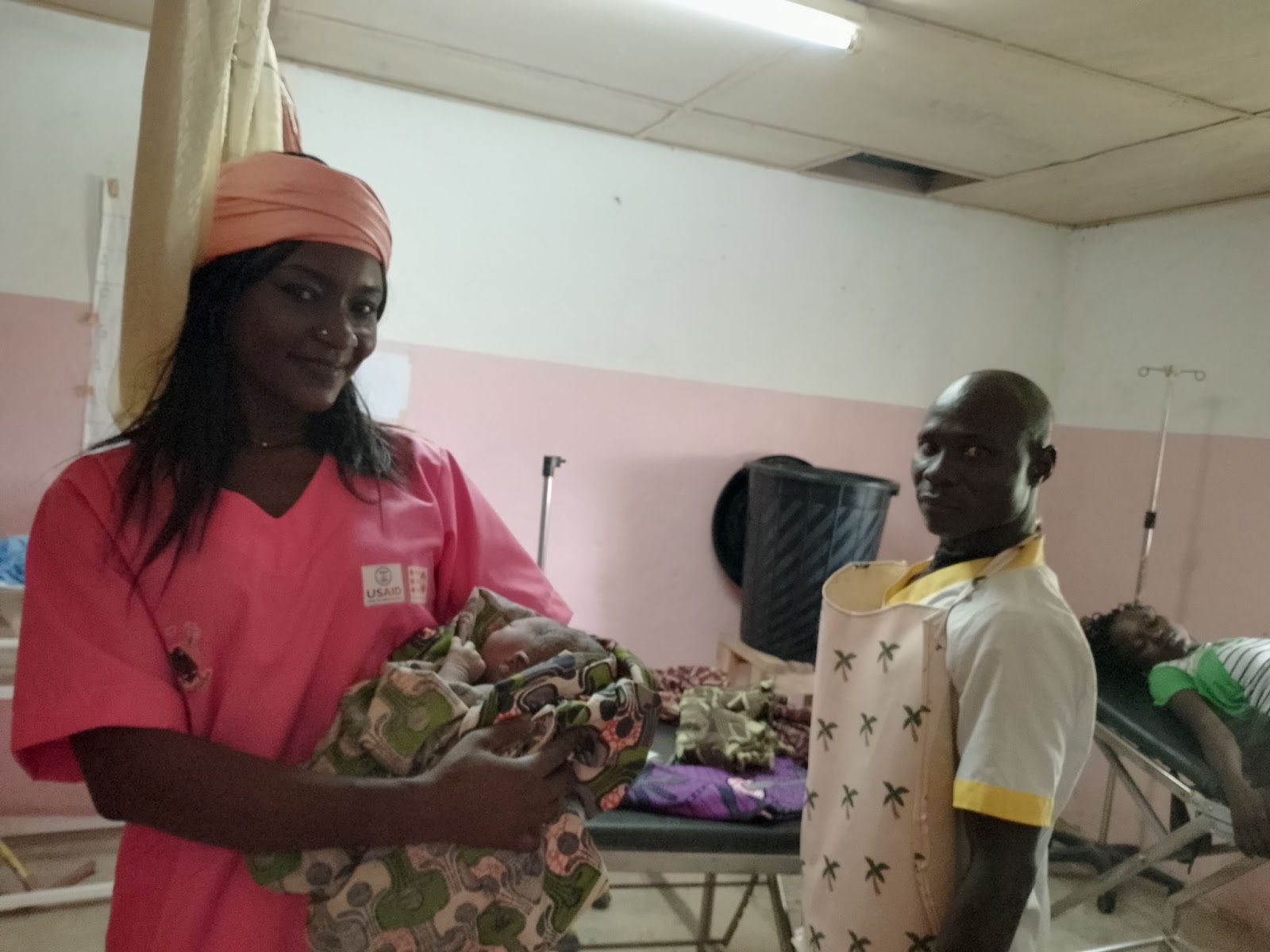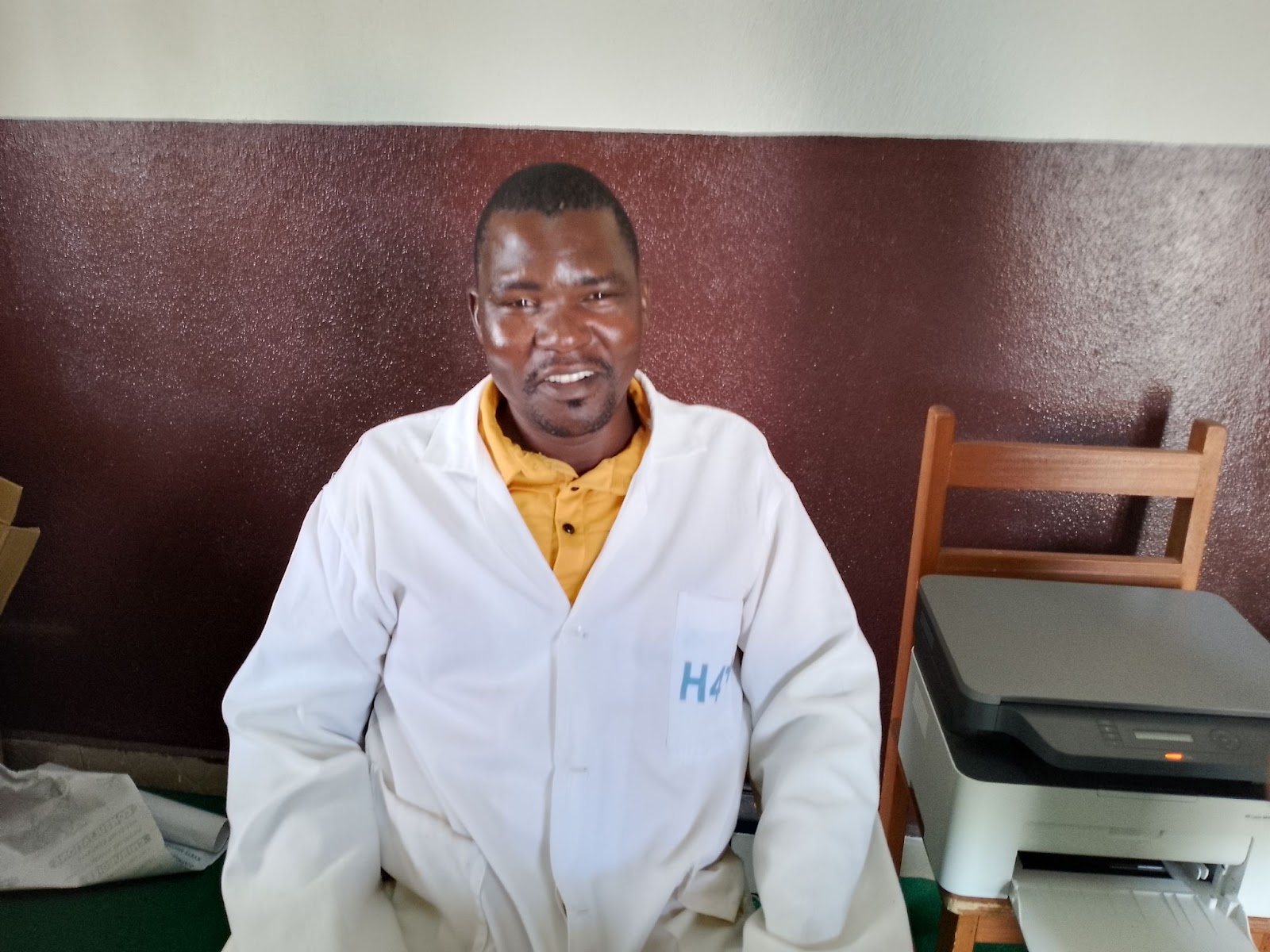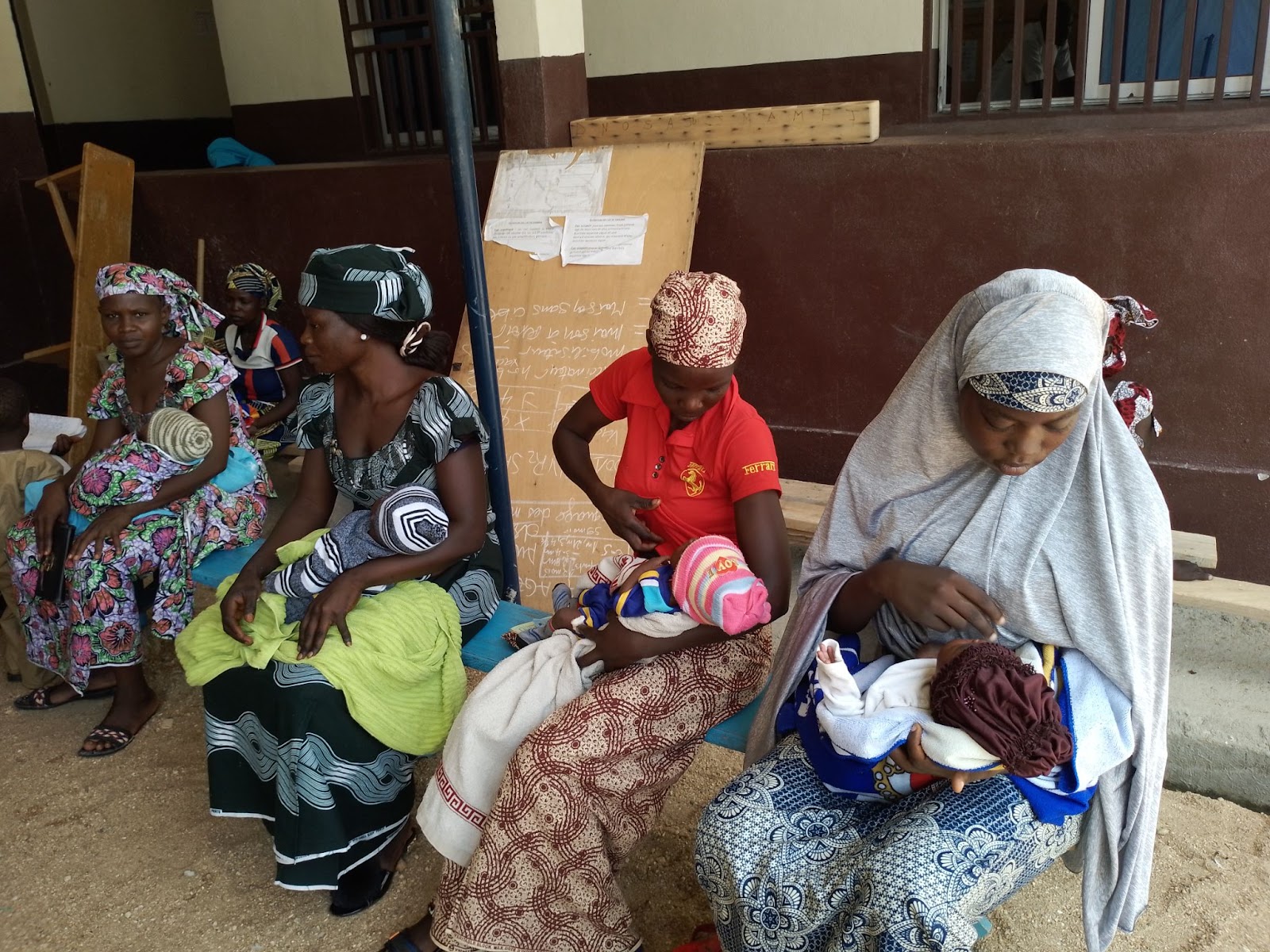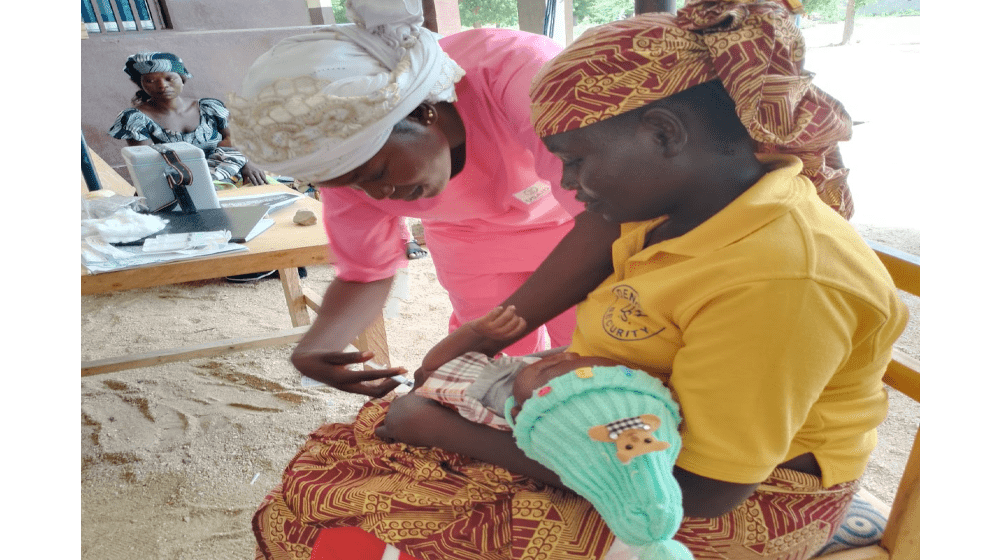
midwife in Djingliya, happily holding
a baby she just delivered. Photo credit:
@UNFPACameroon, September 2023
Maroua, 15 September 2023 - Rebecca (her real name withheld) is a 20-year-old woman who lives in a locality near Koza town in Mayo Tsanaga Division of Cameroon’s Far North Region. Rebecca was displaced from her home village as she was found at a stone's throw from the borders between Cameroon and Nigeria early 2022 due to insecurity. She recalls with pain the circumstances that led to her displacement: “on that fateful night, heavily-armed individuals stormed our village. They slaughtered two young men, raped four women, looted our property. They threatened to come back for the remaining of us. This is what made us flee our village and find refuge in a nearby community, which has not yet come under attack”. In that community, she, her husband, and their 2-year-old son have been living in a host family. She became pregnant while living there and was worried about where she would give birth and how she would access the care she needed because there was no trained midwife in the health center. “Just last year, my sister died due to pregnancy complications in the same health center where I am supposed to give birth. She was referred to the closest hospital, where proper care would be provided. Unfortunately, my sister died in the course of the road from complications. The idea of me likely going through the same is giving me sleepless nights” she lamented.
Fortunately, Rebecca did not have the same fate as her sister. In July 2023, UNFPA deployed a trained midwife in the health center of the community where Rebecca is living. And she gave birth to a healthy baby girl. Catherine Massouo, who assisted Rebecca's delivery, is one of 16 midwives recruited and deployed by UNFPA Cameroon thanks to the support of the Bureau of Humanitarian Affairs of the United States Agency for International Development.
Targeting the most vulnerable populations in the hardest-to-reach localities with lifesaving gender-based violence and sexual and reproductive health services…
The United States has granted UNFPA 1.5 million USD for the prevention and response to gender-based violence and sexual and reproductive health in under-served areas of the Far North region of Cameroon, for a duration of 12 months starting the 1st of July 2023.
The ongoing intervention is an integrated lifesaving response targeting the most urgent protection and sexual and reproductive health needs of IDPs and conflict-affected

says the deployment of midwives will
significantly improve maternal and
neonatal care in the community.
Photo credit: @UNFPACameroon,
September 2023
communities, especially women and girls. The adopted approach combines GBV prevention and response interventions aligned with the GBV in Emergencies Minimum Standards and the Minimum Initial Service Package for Sexual and Reproductive Health in Emergencies, linking with essential integrated primary health care for referral. Key USAID-supported activities are the deployment of midwives and Emergency Inter-Agency Reproductive Health Kits in 8 health facilities, organization of mobile clinics, the reinforcement of Emergency Obstetric and Neonatal Care, the provision of care to survivors of gender-based violence and psychosocial support to women and girls in women’ and girls’ safe spaces. The project is implemented by local actors, namely women-led organizations and regional districts of health.
Some 17,000 direct and 84,000 indirect beneficiaries are targeted in the 8 health districts which rank among the most affected by the crisis hitting the region in Mayo Tsanaga, Mayo Kani, Mayo Danay and Logone-and-Chari Divisions.
Feedback from the communities…
Less than two months after kick-off of the intervention, Pierre Magadjai, the head of one of the supported health centres shared his view: “We have a population of about 18,000 inhabitants with an average monthly birth number between 27 and 40. This strategy by UNFPA to deploy a midwife will bring a significant change here. More and more women are now coming for antenatal and postnatal care, knowing that there is a woman in charge.This is in keeping with local customs. And then obviously, there will be improvement in care generally as we can detect, attend and refer to all issues we see”.
The situation of Sexual and Reproductive Health and Gender-Based Violence in the Far North…
The maternal mortality rate in Cameroon is 406 deaths per 100,000 live births. In fragile situations, maternal mortality ratios increase due to gaps in services, which are a reality in the Far North Region of Cameroon. National data from the Ministry of Public Health shows an important gap in midwives as more than 60% of health facilities in the region have no qualified health care providers, and only 7% of villages have qualified healthcare providers recruited. Many of those on duty in affected areas have abandoned their posts. Suffering populations are forced to seek medical care miles away as seen in the case of Rebecca narrated above. More than 12 health facilities have been closed due to unprecedented flooding that occurred between August and October 2022. These major gaps in services and facilities are real obstacles in safe deliveries.
36% of girls are getting married before 18 years of age in Cameroon. Acc

to by UNFPA-deployed midwives in Koza and Mozogo
. The project target areas have an average of 27 to 40
births per month. None had a trained midwife before
UNFPA’s deployment of midwives. Photo credit:
@UNFPACameroon, September 2023
ording to the humanitarian assessment “Voices from Cameroon, 2023” and the GBV Advocacy Note on GBV and Food Insecurity in the Far North published in 2022, women and girls are particularly at risks of intimate partner violence and child marriage in the most fragile communities affected by conflicts and climate change.
The Far North Region of Cameroon is indeed one of the most vulnerable regions in the country, due to a combination of factors including insecurity, environmental shocks, intercommunity clashes and even exposure to epidemic outbreaks. All these have led to widened inequalities, deeper poverty and mass population displacement. According to the Humanitarian Needs Overview, 4,7 million people are in need of humanitarian assistance in Cameroon in 2023, a significant proportion of whom are in the Far North region. And the region hosts about 450,000 internally displaced persons and 112,000 Nigerian refugees out of the 127,000 in Cameroon. The Humanitarian Response Plan for Cameroon targets 2,7 million people, with humanitarian assistance, including for protection from GBV and sexual and reproductive health services.


